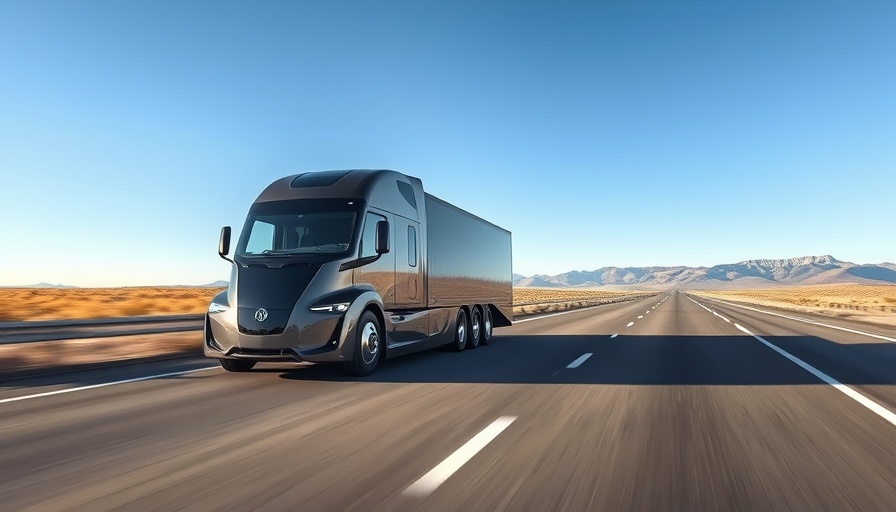
Aurora's Ambitious Leap into Harsh Weather Logistics
In an era defined by rapid technological advancements, Aurora Innovation's new initiative in the transport industry stands out. The company recently announced plans to deploy self-driving trucks capable of navigating harsh weather conditions. This marks a significant pivot in the burgeoning autonomous vehicle sector.
Understanding the Challenge
Self-driving technology has made headlines for its promise to enhance efficiency and safety on the roads. However, harsh weather conditions present unique challenges. Snow, rain, and fog can significantly impede visibility and traction, testing the limits of even the most advanced sensors and algorithms used in autonomous vehicles.
According to industry experts, the ability to successfully operate in such adverse conditions is not merely an engineering hurdle; it represents a major step toward broader adoption of self-driving technology across sectors. By focusing on creating autonomous systems that can handle everything from blizzards to heavy rain, Aurora is not just catering to a niche market but is positioning itself at the forefront of the industry.
A Game Changer for the Supply Chain
The logistics sector, often impacted by severe weather disruptions, is ripe for transformation. With Aurora's technology, companies could potentially maintain their supply chains seamlessly, mitigating the delays typically caused by inclement weather. This innovation could ensure that essential goods continue to be delivered on time, regardless of the climate.
“To have a self-driving truck that can effectively handle snow and ice means peace of mind for logistics companies,” stated a logistics analyst. “It opens up routes that were once considered impassable during certain seasons.” Such capabilities could help businesses manage their operations more effectively, resulting in enhanced reliability and customer satisfaction.
Looking Ahead: The Future of Autonomous Vehicles
Aurora's move may also inspire other tech firms to refine their own vehicles for inclement weather. The more companies that innovate in this field, the better prepared the industry will be for the challenges posed by climate change. With increasing unpredictability in weather patterns, advancements in this field may soon become essential rather than optional.
The Nuances of Public Perception
While technological advancements are promising, public sentiment offers a different narrative. Concerns around safety and job displacement remain prevalent. Many communities rely heavily on the trucking industry for local employment, raising questions about the social impact of automated vehicles. Aurora must not only focus on the technology but also address these crucial societal concerns proactively.
Final Thoughts: Embracing Innovation
As Aurora gears up for deployment, it will need to strike a balance between innovation and responsibility. This includes engaging with communities and stakeholders to discuss the implications of self-driving trucks. The success of this technology won’t just hinge on engineering prowess; it will also depend on public acceptance and regulatory frameworks that keep pace with change.
In conclusion, Aurora's ambitious plans to harness self-driving trucks in harsh weather are a notable leap towards redefining logistics in a rapidly changing world. Those interested in the forefront of technological innovation should definitely keep an eye on Aurora's upcoming initiatives and their potential impacts on the transport sector and beyond.
 Add Element
Add Element  Add Row
Add Row 



 Add Row
Add Row  Add
Add 


Write A Comment